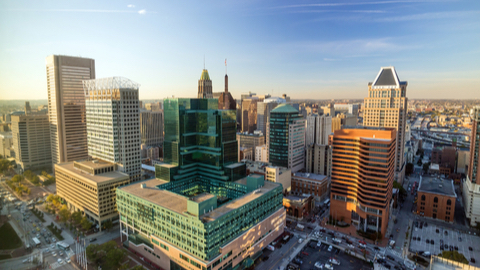
The city of Baltimore, Maryland is working with the ride-share company, Lyft, on a six-month pilot – the Baltimore Grocery Access Program – to provide subsidized trips for residents in low-income neighborhoods to travel to participating grocery stores in order to be able to buy healthful food.
It’s estimated that one in four people in Baltimore lives in a food desert. The designation means their area ranks poorly in a city measure of food store quality, has a low median income, more than 30% of its households don’t have private transport, and it’s more than a quarter-mile (~0.4 km) from a supermarket.
Up to 200 people can participate in the pilot program which will provide one-way rides for $2.50 each way. Each rider can take up to eight such trips per month through next April. A combination of city dollars, grant money the city receives from casino revenue, and a contribution from Lyft will make up the $73,000 cost for the first six months of the pilot.
“In healthy food priority areas, a lack of transportation options makes the simple act of getting to and from the grocery store and feeding one’s family with fresh foods a struggle for many people,” said Mike Heslin, general manager for Lyft Baltimore. “Lyft is dedicated to removing the transportation barriers people face in their daily lives. We’re confident this innovative approach from the city and our other partners will make healthy food accessible for hundreds of families in south and west Baltimore.”
Professor Celeste Chavis, in Morgan State University’s transportation and urban infrastructure department, will study the program to evaluate its effectiveness.
“Healthy food is a basic right,” said mayor Bernard C. “Jack” Young. “One of Baltimore City’s eight Healthy Food Environment Strategies is to address transportation gaps impacting food access. This innovative rideshare pilot not only helps residents get to and from the grocery store, but also reduces travel time and puts money back into the pockets of low-income residents so they are able to buy more healthy foods. These are the types of public-private partnerships that will advance Baltimore and I applaud Lyft for working to address this critical gap in food access for our residents.”


